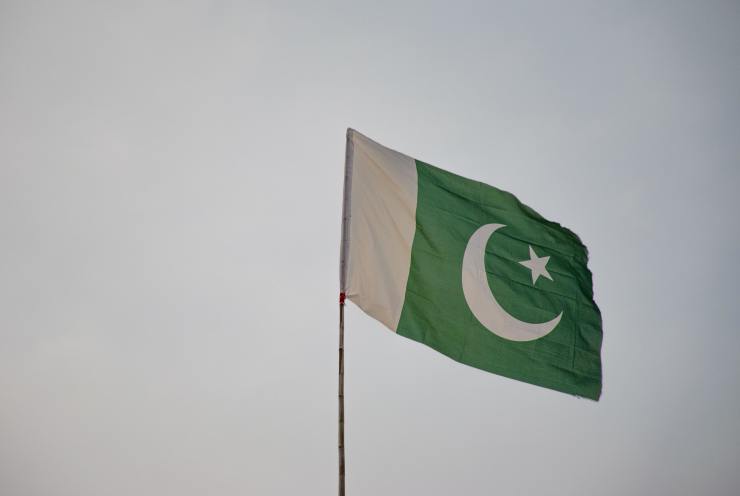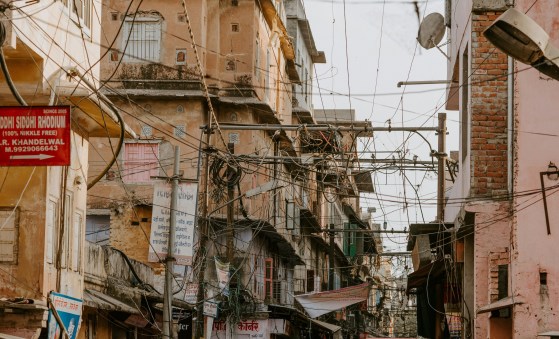
Nearly six months after the outbreak of communal violence targeting Pakistan's Christian minority in Jaranwala, victims are increasingly despairing over the lack of accountability for perpetrators of the Islamist mob attacks that destroyed homes and churches. Allegations have surfaced of police intimidation of witnesses and deliberate botching of investigations, allowing most suspects arrested in connection with the riots to obtain bail.
In mid-August last year, incited by local mosque leaders, hundreds of Muslims ransacked Christian neighbourhoods in Jaranwala Tehsil of Punjab Province's Faisalabad District. 22 Churches and 1 parish house was burned down as rioters looted scores of homes and businesses belonging to the Christian community. The unrest was triggered by false accusations that two Christian brothers had desecrated pages of the Quran and made blasphemous remarks.
Although over 600 unnamed suspects were charged under anti-terrorism laws for their alleged role in the riots, only 283 were detained. Due to what observers cite as purposefully shoddy police probes, many suspects have since secured bail and been released. Rights advocates point to video evidence clearly showing involvement of individuals who remain free.
“Despite clear face visibility in the videos, the police showed laxity in arresting them,” pointed Asher Sarfraz, the co-founder of a non-profit advocacy organization Christians True Spirit (CTS) to Christian Today.
“Churches were burnt on 16 August 2023, and till 20th the police did nothing. When international pressure started to build up, the police started to arrest Christians including women and children under fake and false cases instead of arresting the culprits in the Jaranwala case. The Christians were arrested in trivial allegations of theft, etc and sent to jail,” added Sarfraz.
A total of about 40 Christians were falsely implicated.
“The role of the police should become clear just from this, that we (Christians) were the victims and it was Christians who were being arrested,” added he.
CTS filed a petition and got about 28 people released. Another organization got around 10 people released as per reports.
Sarfraz had also filed a petition in the High Court pleading to constitute a judicial commission to enquire into the incident under a High Court judge. He had also requested that strict action be taken against the policemen who were witnesses to the riot and did nothing to stop it.
The judge on September 1, 2023 ordered that a judicial commission be made in 15 days.
“Despite court orders, nothing has been formed yet,” said Sarfaraz.
After judicial pressure, the police arrested several suspects but instead of arresting the master-minds in the case, they arrested common folks like the vegetable vendors etc., said Sarfaraz.
A former Jaranwala councillor who helped 17 Christian complainants file cases over destroyed property has accused investigating officers of ignoring identified culprits and wrongfully arresting random bystanders instead. He claimed that repeated requests to arrest suspects seen in video footage vandalizing Christian institutions have been overlooked.
Out of over 280 bail pleas filed by suspects in the Faisalabad anti-terrorism court, around 80 percent have been approved so far. Only 45 were rejected while 13 are pending. According to lawyers, the Joint Investigation Teams set up by Punjab authorities have weak evidence against those detained, enabling their bail approval.
“Police arrested people without specifying specific charges and so it got very easy for them to procure bail. There was laxity in filing and specifying charges in the First Information Report and all of that seemed intentional,” said Sarfaraz to Christian Today.
Christian leaders and activists had hoped the extensive damage from the riots would prod police into conducting credible investigations. But they have expressed dismay at the lack of interest shown in bringing the perpetrators to justice. Rights groups have urged utilizing technology like geotagging and facial recognition to properly identify culprits caught on camera during the violence.
Some suspects were able to submit sworn affidavits to courts from fearful Christian complainants attesting to their innocence. Witnesses and victims have complained of humiliation and threats by police to deter them from pursuing complaints. Christian lawyers were denied access to investigation records and claim complainants were pressured into withdrawing representation.
Along with investigating authorities, Christian representatives have also come under fire for not actively monitoring the legal processes after the initial furore over the riots subsided. More focus was placed on appealing for reconstruction donations from Western groups than on pushing for convictions. Protests and pressure tactics were avoided in favour of dialogue with officials, which has yielded little.
Church leaders petitioned the Lahore High Court in September seeking a judicial inquiry into the riots, accusing local police of deliberately botching investigations under political influence. They emphasized that perpetrators must be punished to prevent such communal attacks from recurring against the country's vulnerable minorities. Pakistan ranks high worldwide in religious intolerance.
Fears persist that justice for the Jaranwala anti-Christian riots may be hindered by slow prosecution, political apathy, and police complicity. Christian leaders vow to pursue accountability, but victims remain sceptical about the system's ability to protect minorities from communal violence in Pakistan.




